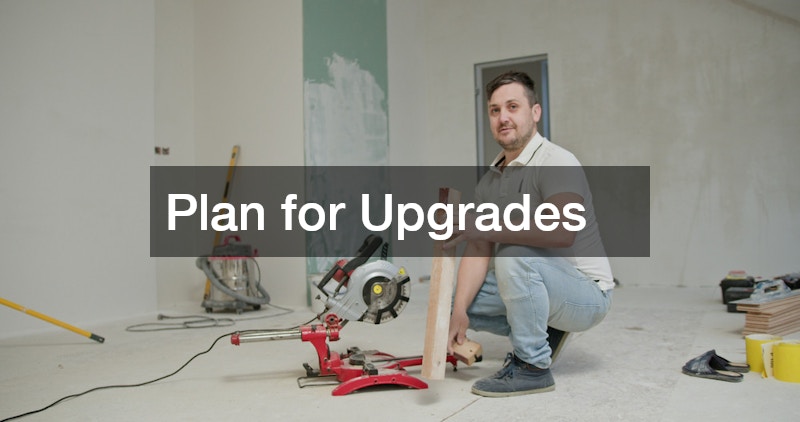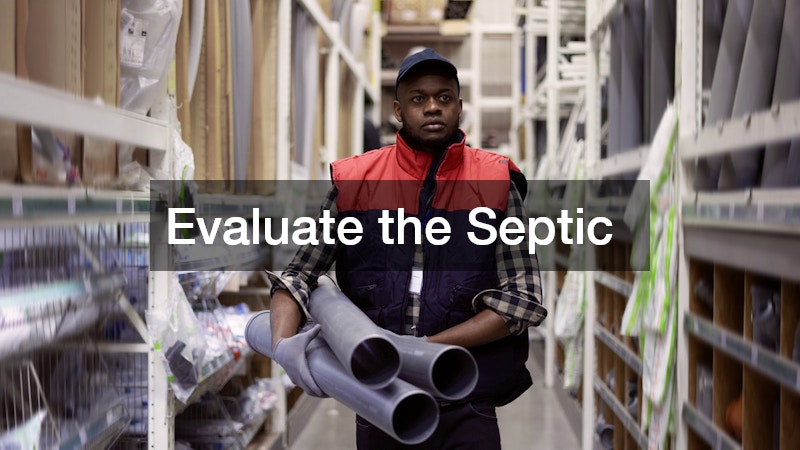Las Vegas is a city of opportunity, not only for entertainment and business, but also for homeownership. For many first-time buyers, the excitement of buying a starter home in this vibrant city comes with its fair share of challenges. From navigating local market trends to budgeting for future improvements, having the right guidance can make all the difference. Buying a starter home is a major milestone, and the process in Las Vegas requires a blend of preparation, research, and professional insight.
Before making a purchase, prospective buyers need to familiarize themselves with the critical aspects of homeownership that go beyond aesthetics or location. Understanding financial obligations, property conditions, and long-term maintenance can help prevent costly surprises later. Whether it’s evaluating the structure, understanding the neighborhood, or anticipating insurance and renovation needs, it all adds up to making an informed decision that sets a strong foundation for future growth.
This guide presents ten expert tips that will help first-time buyers make sound choices in the Las Vegas real estate market. Each tip aligns with a specific element of the home-buying journey—from working with trusted professionals to inspecting critical home systems. By breaking down these essential areas into manageable parts, readers will gain the confidence and clarity needed to pursue homeownership strategically and responsibly. With this roadmap, the path to buying a starter home in Las Vegas becomes less daunting and more empowering.
1. Work With a Pro

When stepping into the Las Vegas housing market for the first time, partnering with a seasoned expert can streamline your entire journey. A knowledgeable professional can offer insights into neighborhood trends, help interpret market data, and provide advice tailored to your needs and budget. This guidance is essential when buying a starter home, especially in a fast-moving market like Las Vegas.
A local realtor brings firsthand knowledge of the area and can point out hidden gems or potential red flags that might not be visible in listings alone. Their connections with lenders, inspectors, and contractors can also give buyers access to a reliable network that supports the buying process from start to finish. In a competitive city where inventory moves quickly, their negotiation skills could also mean the difference between winning or losing your ideal property.
Additionally, they can educate first-time buyers on the nuances of property disclosures, zoning laws and offer strategies tailored to Las Vegas’s unique housing climate. For anyone buying a starter home, these insights provide a critical advantage that can help ensure your first home isn’t just affordable, but also a wise investment.
2. Understand Financing
One of the most vital steps in buying a starter home is understanding how much house you can truly afford. Financing isn’t just about being approved. It’s about choosing a solution that aligns with your income, expenses, and long-term goals. The right structure can make homeownership manageable, while the wrong one can lead to future financial stress.
Applying for a home mortgage involves more than picking a lender. It requires comparing terms, evaluating interest rates, and understanding how credit scores and debt-to-income ratios impact eligibility. Buyers should also be aware of first-time buyer programs available in Las Vegas that may offer reduced rates, lower down payments, or assistance with closing costs. These options can be instrumental in making the leap from renter to owner.
Choosing the right home mortgage ensures that your monthly payments stay within a comfortable range while leaving room for ongoing costs like maintenance and utilities. For those buying a starter home, a financially sound mortgage is the foundation of a secure and stable entry into the housing market.
3. Check Property Value

Determining a property’s true market value is a crucial step in buying a starter home. Without an accurate valuation, you risk overpaying or underestimating potential issues that affect long-term affordability. The Las Vegas market can be dynamic, with values fluctuating based on location, development trends, and home condition. That’s why it’s essential to know exactly what the property is worth before finalizing a deal.
A house appraisal, typically required by lenders, offers an impartial assessment of the home’s value based on comparable sales, the home’s features, and its overall condition. This step is especially important in areas with rapidly shifting prices like Las Vegas, where property values can vary significantly from block to block. An accurate appraisal protects both the buyer and the lender by ensuring the sale price is in line with market standards.
For those buying a starter home, an appraisal is more than a formality. It’s a tool that can influence your offer, inform your negotiations, and help you understand whether you’re making a smart financial decision. It adds an objective lens to what is often an emotional decision and sets the tone for a fair purchase.
4. Secure Proper Coverage
Insurance might not be the most exciting part of buying a starter home, but it’s one of the most necessary. Protecting your investment with the right policy ensures that unexpected events, like fire, theft, or weather-related damage, don’t derail your financial future. In a place like Las Vegas, where extreme heat and occasional storms can impact properties, insurance should never be an afterthought.
A comprehensive homeowners insurance policy doesn’t just satisfy lender requirements; it provides peace of mind. Policies vary widely in what they cover, so it’s important to compare providers and tailor the plan to your specific property’s needs. Factors like the home’s age, location, and features will affect your premium and the types of coverage you need.
For anyone buying a starter home, this step adds a vital layer of protection and stability. It ensures that you’re not only prepared for minor mishaps but also safeguarded against major losses. The right policy turns your first home from a financial risk into a more secure, long-term investment.
5. Plan for Upgrades

Most starter homes aren’t move-in ready in every way, and that’s okay. Planning for future updates can be a smart strategy when buying a starter home. Knowing where to invest your money, whether it’s in cosmetic changes or structural improvements, can boost value and increase comfort without overextending your budget upfront.
Working with experienced home remodeling contractors can help you map out changes that align with your style, needs, and financial capacity. From kitchen updates to bathroom renovations, even small projects can significantly enhance your quality of life. In Las Vegas, many older homes may need energy-efficient upgrades, modern finishes, or layout adjustments to better fit today’s living standards.
When buying a starter home, budgeting for improvements ensures that your property continues to evolve with your life. It gives you the flexibility to start small and expand your efforts over time, turning your starter space into a home that truly reflects your goals and personality.
6. Inspect the Heating
Temperature control is essential when buying a starter home, especially in a climate like Las Vegas, where summers are scorching and winters can bring chilly desert nights. Ensuring the home’s heating system functions efficiently isn’t just about comfort—it’s about avoiding costly surprises after move-in. A thorough inspection helps you understand the system’s age, efficiency, and potential repair needs.
A professional heater inspection can reveal issues that might not be immediately noticeable, such as faulty thermostats, aging furnaces, or duct leaks. These problems can lead to uneven heating or higher utility bills down the road. In older homes, outdated systems may need upgrading, which can significantly affect your initial budget and maintenance plan.
For those buying a starter home, confirming the condition of the heating system is an important part of protecting your investment. It helps you negotiate repairs or replacement costs before closing and ensures you’re prepared for seasonal temperature shifts in your new home.
7. Evaluate the Septic

Not all homes in Las Vegas are connected to a municipal sewer system, especially in more rural or outskirts areas, so septic system functionality can be a major consideration when buying a starter home. Ignoring this system during the inspection process could lead to significant repair expenses or even health hazards after purchase.
Septic inspections involve evaluating the tank, drainage field, and piping for leaks, clogs, and general wear. A trained inspector will check for signs of overflow, back-up, or potential failures that could result in unpleasant surprises after moving in. These issues are often costly to fix and can impact your ability to live in the home while repairs are underway.
When buying a starter home, a septic inspection ensures the system is safe, compliant, and fully operational. It also helps you understand how to maintain it properly so you can avoid emergency calls and extend the life of the system well into your homeownership journey.
8. Assess the Roof
The condition of the roof is one of the most significant structural factors to evaluate when buying a starter home. A good roof protects the entire home from the elements, while a failing one can lead to leaks, mold, and interior damage. In a city like Las Vegas, with its hot sun and occasional storms, roofing issues can escalate quickly if left unaddressed.
Inspecting the roof’s age, material, and current wear can provide insight into future maintenance or replacement needs. Look for missing shingles, signs of water intrusion, or sagging areas that could indicate underlying problems. In some cases, sellers may already have inspection reports or recent repairs documented. Always ask for these details during negotiations.
For first-time buyers, understanding roofing conditions helps avoid large, unexpected expenses soon after closing. It also gives you leverage in discussions with sellers if repair or replacement is needed. When buying a starter home, a sound roof provides peace of mind and long-term protection.
9. Check the Pipes
Plumbing is one of the most important systems to evaluate when buying a starter home. Water leaks, pipe corrosion, and inefficient fixtures can lead to ongoing frustrations and costly repairs if not identified early. In homes of varying ages, especially in parts of Las Vegas where infrastructure can differ widely, plumbing should always be a key focus during your inspection.
Hiring professionals who provide plumbing services can uncover problems hidden behind walls or under floors, like low water pressure, slow drains, or outdated piping. These issues may seem minor, but can signal larger problems, including slab leaks or failing sewer lines. Even newer homes may have builder-grade components that could benefit from upgrades.
When buying a starter home, ensuring the plumbing is in good shape is essential for long-term comfort and safety. Properly functioning water systems enhance daily living and help avoid disruptions that can interfere with everything from bathing to cooking to laundry.
10. Review the Driveway
While it might not be top of mind, the driveway and surrounding hardscape are worth close attention when buying a starter home. Cracked, uneven, or deteriorating surfaces can affect curb appeal, pose safety risks, and signal foundational shifts. In Las Vegas, where hot temperatures and soil conditions can stress materials, concrete wear and tear is not uncommon.
Assessing the condition of the concrete around your future home—including the driveway, walkways, and patios—can reveal issues that need immediate or eventual repair. Look for surface flaking, deep cracks, pooling water, or misalignment that may require leveling or resurfacing. These fixes, while not always urgent, can become costly over time if ignored.
As a first-time buyer, addressing concrete concerns during the buying process allows for better planning and potential negotiation. It ensures the property is both functional and visually appealing, supporting a positive first impression and long-term satisfaction after buying a starter home.
Getting It Right
Buying a starter home in Las Vegas can be an exciting and empowering experience, especially with the right guidance and planning. From navigating the initial stages of hiring professionals to evaluating a home’s major systems and structural elements, every step plays a critical role in ensuring your investment is sound and your future is secure. The tips covered in this guide are designed to help first-time buyers understand the many components that go into making a smart purchase.
It’s easy to get swept up in curb appeal or interior finishes. However, it’s the behind-the-scenes elements like heating, plumbing, and inspections that often determine how livable and sustainable a home will be. Factoring in the condition of the roof, the efficiency of the heating system, the integrity of the plumbing, and the overall state of the property’s structure can help you avoid buyer’s remorse and move forward with confidence.
Most importantly, this process doesn’t have to be overwhelming. With a step-by-step approach and support from experienced professionals, buying a starter home becomes less intimidating and more manageable. Whether you’re drawn to Las Vegas for its climate, lifestyle, or opportunities, these expert tips will prepare you to make informed decisions and take your first step toward long-term homeownership success. Remember, your first home sets the foundation for future growth, so take the time to get it right.



